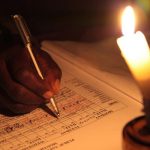The political landscape in South Africa is shifting, and the Democratic Alliance (DA) is positioning itself as a key player in the new era. DA federal council chair, Helen Zille, has been vocal about the party's strategy, particularly in the wake of the May 29 elections which saw the ANC shed a monumental 17 percentage points, forcing it to form a coalition government with nine other parties.
Zille, who was central to the DA's negotiations with the ANC on the formation of the government of national unity (GNU), has been pushing back against the ANC's insistence that the current arrangement is a GNU. She argues that a true GNU would contain a party with an outright majority and wouldn't exclude some parties as it currently does.
"A true GNU would contain a party with an outright majority, and would not exclude some parties as it currently does," Zille said, speaking on the Clement Manyathela Show on 702 on Tuesday morning.
"We don't care what you call it. In the DA, we call it a hybrid model, other people call it a GNU. That's fine. We have no problem calling it a Government of National Unity," she added.
Zille's stance has ruffled feathers within the ANC, with the party's first secretary general, Nomvula Mokonyane, suggesting the DA is a "guest" in the GNU. Zille has firmly rejected this notion, stating, "We are not."
"The ANC is behaving as if it's a majority party, and has taken umbrage to a remark [by the party’s first secretary general, Nomvula Mokonyane] that the DA is a guest in the GNU," Zille said. "If there's any cause for friction, it is because some people in the ANC, I'm not saying all – think we are there by grace and favour of the ANC. We are not."
The DA is banking on the possible disintegration of the ANC and President Cyril Ramaphosa stepping down as the party leader for it to be promoted to the largest political party in SA, breaking the ANC's three-decade dominance.
"The ANC is crumbling and we need to consolidate," Zille said, adding that the party's "real competitor" in politics was the EFF following the ANC's poor performance at the May 29 polls.
"The radical left [MK and EFF] is now the opposition. They could be in government, which would be much worse. That was the whole point of the election campaign — to keep them out of government, which we succeeded in doing," Zille said.
"Our real competitor in politics is the EFF, because the EFF knows what it stands for and we know what we stand for."
Zille's analysis of the political landscape paints a picture of a fractured ANC, struggling to maintain its grip on power. She predicts the party will continue to crumble over the next 10 to 15 years, as it grapples with the loss of complete state power and its inability to dispense patronage.
"Over the next 10 to 15 years, the ANC will continue to crumble," said Zille, because it is her view that the party has lost its purpose.
The ANC would, of course, disagree. Its renewal of its people and structures is continuing and ANC leaders argue that the split-off of MK has seen it shake off its “state capture” wing. (That’s debatable. Ed.)
This analysis of the party’s big loss in the May election by Joel Netshitenzhe is worth reading – he says the party faithful have lost trust in the ANC’s ability to liberate them.
Zille's vision for the DA is clear: to become the largest party in South Africa and solidify its position as the leader of the "non-racial, democratic centre" in the country.
"As the ANC disintegrates … our job [is] to be in government and to govern so well and to show people the DA difference in government, and to consolidate the nonracial, democratic centre in SA," she said.
"My prediction is that over the next 10 to 15 years the ANC will continue to crumble and the big challenge is the constitutionalists [will] win that base. Will the constitutionalists be able to come together in the realigned politics so that we can continue to govern this country as a viable democracy or will the MK and EFF win that race?"











